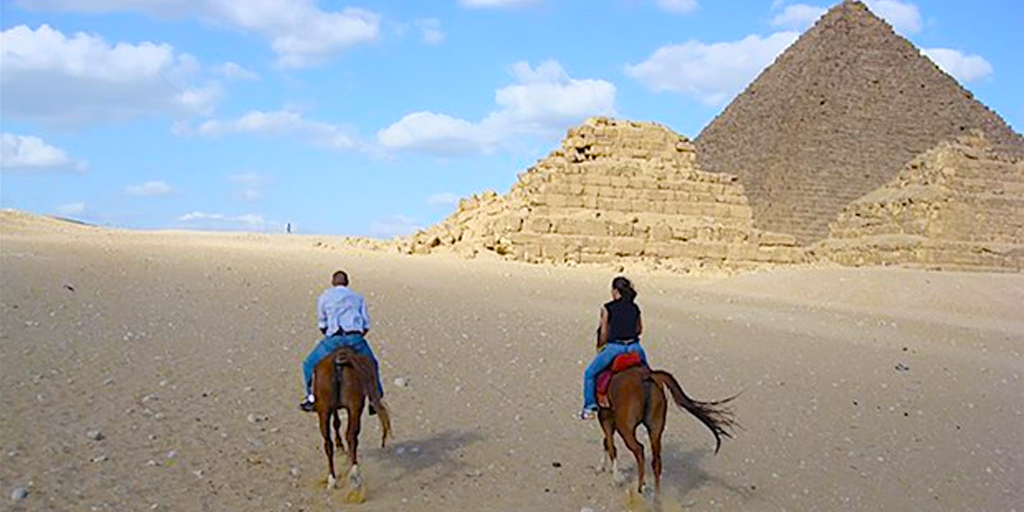Student Travel: the benefits of being a student of the world, instead of a university.
I recently saw an ad with this headline: “How Do You Gain an Edge in the World? By Navigating Around It.” I was captivated by the message, but a little taken back when I saw that it was an ad for a George Washington University graduate program. Rather than sitting in a downtown D.C. classroom, wouldn’t this edge be better gained by actually navigating around the world? This is what I refer to as student travel.
And if that edge was true, then why do so many people pursue graduate degrees instead of taking time to travel around the world? Does 2 years and $100,000 in student debt really yield a 5-10 times higher return on investment than a 1-year round-the-world trip that typically costs $20,000?
Before the tourism industry got its hands on travel, travel used to be viewed as a form of study. Student travel was core to a lot of classic beliefs. Mark Twain believed that “one must travel, to learn”, Jesus traveled in the dessert for 40 days, and the Koran states that Mohammed told his followers “don’t tell me how educated you are, tell me how much you traveled.” For some reason, this student travel perspective has been lost in the minds of aspiring students.
We must shift from viewing travel as vacation or something to do in retirement. Intentional and frequent travel should be viewed as a form of education and an investment in oneself. It’s an investment that will pay dividends and compound in your personal and professional development.
After all, the three most common benefits of graduate school are: 1) to learn information necessary to advance your career, 2) to figure out what you really want to do in life, and 3) to build your network.
Here are my thoughts on why student travel helps you achieve each of these benefits more than grad school:
1. Learn information necessary to advance your career
We live in an increasingly diverse and interconnected world. In our knowledge-based economy, successful careers are no longer based on specific skills, but rather the ability to find new opportunities, think creatively, adapt, and connect with others. Long-term travel will teach you far more about the world and factors impacting it than sitting in a classroom. Find ways to meet with locals, volunteer, consult, or conduct a research project within your desired career path. These hands-on experiences will serve as the ultimate course in people, culture, economics, development, international relations, and world history. After all, if you were hiring a manager for a multinational corporation, wouldn’t working on projects all over the world be a more attractive resume bullet than a degree in international business?
2. Figure out what you really want to do in life
Long-term travel takes you out of your comfort zone, routine, and traditional influences. This environment provides ample time for self-reflection and helps you solidify your goals and priorities. Your newfound time flexibility will force you to answer the tough question: “what do I actually want to do with my day, week, and month?” I have never returned from a long trip without a major life epiphany. One study conducted by business school professors concluded that that those who spend time abroad have “both a clearer and more complex sense of self.” This clarity of purpose – and ability to articulate it – provide substantial psychological and career benefits.
3. Build your network
Long-term travel enables you to build a global network of people doing remarkable things around the world. Student travel also enhances your abilities to build your professional network at home when you return. You build a valuable skillset of quickly making friends with anyone after being placed in so many new environments and cultures. Your travel adventures also make you a more interesting person to talk with. Many professional opportunities arose for me simply because people wanted to hear about my travels. When pursuing a new career, you can and should put your overseas experiences on your resume and talk about it in interviews. This will help you stand out among the hundreds of people who all had similar degrees and work experiences. Of course this doesn’t work if you only drank Piña Coladas on the beach during your travels, but it could go a long way if you maintained a blog, consulted, volunteered, learned a language, conducted research, or visited some off the beaten path destinations.
Oh, and did I mention that you will probably have a lot more fun and have a bucket list experience that you will never regret? Well, that too.
If you know someone considering grad school, please share this article with them if you think the philosophy of student travel would be helpful. You can also follow me on Instagram or sign up for my free weekly digest about ways to travel the world, build a successful business or career, and make a difference at the same time:
Error: No feed found.
Please go to the Instagram Feed settings page to create a feed.
student travel instead of grad school


